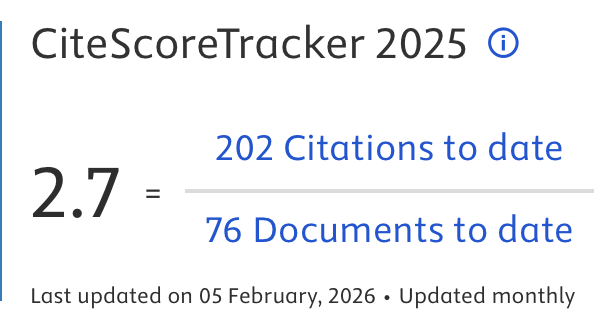POLIGAMI DALAM PERSPEKTIF FAKHR AL-DÎN AL-RÂZÎ DAN FAQIHUDDIN ABDUL KODIR
DOI:
https://doi.org/10.14421/qh.2019.2002-05Keywords:
Poligami, Kontekstualisasi, ModerasiAbstract
One of the religious and social issues that is intriguing and interesting to discuss is polygamy with various differences of opinion in it. This article will compare polygamy in the view of two classical and contemporary scholars, Fakhrudin Ar-Rozi and Faqihuddin Abdul Kodir. The background to the selection of these two figures is due to their opinions in the interpretation of the polygamy verse which is different from most commentators. In this verse we will discuss classical polygamy verse interpretation, verse background, and contemporary polygamy interpretation and then examine the contextualisation in this modern era and can see a more moderate interpretation by comparing them. This study concludes that the problem of polygamy is no longer focused on the underlying motives, but rather on the impact experienced by his wife and children. The interpretation of al-Râzî and Faqihuddin Abdul Kodir has been able to represent the voicing of women's rights in polygamy. This does not get the agreement of all parties, in the sense that there will still be parties that allow it for different reasons. However, the existence of this analysis can help each party to be more sensitive to the reality experienced by women. al-Râzî and Abdul Kodir are on a linear line that has severe conditions for permitting polygamy and encouraging other worship. Although both of them use different approaches and perspectives, they produce thoughts which in the author’s view are almost the same.
Keyword: Polygamy; Contextualization; Moderation
References
‘Alwânî (al), ṭaha Jâbir. al-Imâm Fakhr al-Dîn al-Râzî wa Muṣannafâtuh. Kairo: Dâr al-Salâm, 2010.
‘Azîz (al), Aḥmad bin ‘Abd. Ummahât al-Mukminîn Zawjât Rasûl Allah. Kairo: Maktabah al-Imân, 2005.
A.E, Haliem. Roman Pernikahan Para Nabi. Surabaya: PT. Bina Ilmu, 1987.
Bukhârî (al), Muḥammad bin Ismâil. ṣaḥîḥ al-Bukhârî. Beirut: Dar ṭûq al-Najâh, 1422 H.
Horton, Paul B. dan Chester L. Hunt. Sosiologi. Terj. Aminuddin Ram dan Tita Sobari. Jakarta: Erlangga, 2006.
Kodir, Faqihuddin Abdul. Qira’ah Mubadalah. Yogyakarta: IRCiSOD, 2019.
Moqsith, Abd. “Tafsir atas Poligami dalam Al-Qur’an” Jurnal Karsa, Vol. 23, No.1. Juni 2015.
Qurṭubî (al), Muḥammad bin Aḥmad. al-Jâmi’ li Aḥkâm al-Qur’an. Kairo: Dâr al-Kutub al-Mishriyah, 1962.
Râzî (al), Fakhr al-Dîn Muḥmmad bin ‘Umar. Mafâtiḥ al-Ghayb (Beirut: Dâr al-Turath al-Islay, 1420 H.), hlm. 485.
Shihab, M. Quraish. Islam yang Disalahpahami. Tangerang: Lentera Hati, 2018.
Wahâb (al), Aḥmad Abd. Ta’ađdud Nisâ’ al-Anbiyâ’. Kairo: Maktabah Wahbah, 1989.
Wahâb (al), Maḥmûd Abd. Ta’âdud al-Zawjât Bayn al-Naẓriyah wa al-Taṭbîq. Kairo: Maktabah al-Imân, 2007.
Wilar, Abraham Silo. Poligini Nabi. Yogyakarta: Pustaka Rihlah, 2006.
Downloads
Published
Issue
Section
License
Publishing your paper with Jurnal Studi Ilmu-ilmu al-Qur'an dan Hadis means that the author or authors retain the copyright in the paper. Jurnal Studi Ilmu-ilmu al-Qur'an dan Hadis uses license CC-BY-NC-ND or an equivalent license as the optimal license for the publication, distribution, use, and reuse of scholarly works. This license permits anyone to copy and redistribute the material in any medium or format and must give appropriate credit, provide a link to the license, and indicate if changes were made. If you remix, translate, transform or build upon the material you may use it for private use only and not for distribution. Jurnal Studi Ilmu-ilmu al-Qur'an dan Hadis granted an exclusive non-commercial reuse license by the author(s), but the author(s) are able to put the paper onto a website, distribute it to colleagues, give it to students, use it in your thesis, etc, so long as the use is not directed at a commercial advantage or toward private monetary gain. The author(s) can reuse the figures and tables and other information contained in their paper published by Jurnal Studi Ilmu-ilmu al-Qur'an dan Hadis in future papers or work without having to ask anyone for permission, provided that the figures, tables, or other information that is included in the new paper or work properly references the published paper as the source of the figures, tables or other information, and the new paper or work is not direct at a private monetary gain or commercial advantage.
Jurnal Studi Ilmu-ilmu al-Qur'an dan Hadis journal Open Acces articles are distrubuted under the Creative Commons Attribution-NonCommercial-NoDerivatives 4.0 International (CC BY-NC-ND 4.0). Article can be read, copy and redistribute the material ini any medium or format under the following conditions:
Attribution — You must give appropriate credit, provide a link to the license, and indicate if changes were made. You may do so in any reasonable manner, but not in any way that suggests the licensor endorses you or your use.
NonCommercial — You may not use the material for commercial purposes.
NoDerivatives — If you remix, transform, or build upon the material, you may not distribute the modified material.










